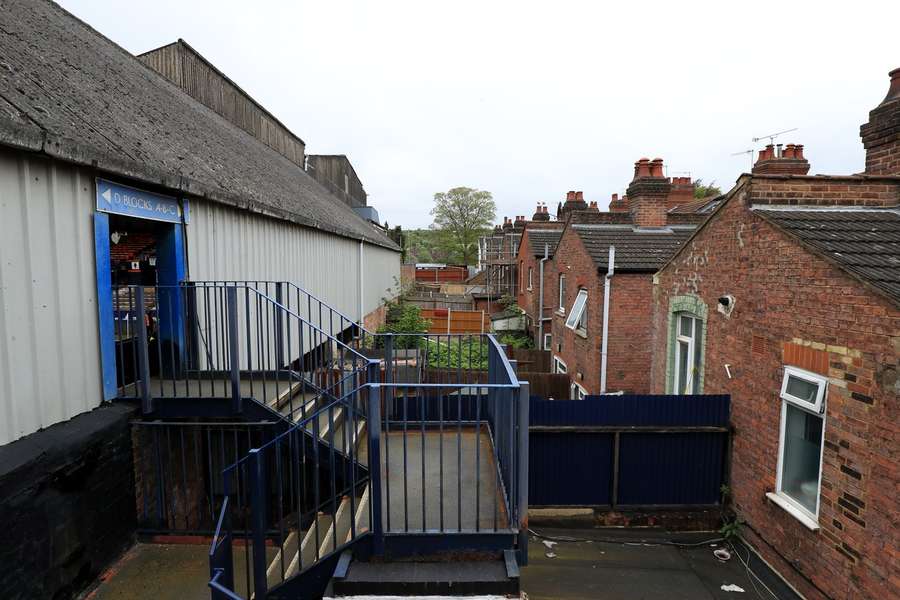Luton Town: From non-league nightmare to Premier League fairytale

It means it’s a first-ever appearance in the Premier League for the Hatters, as it launched just the following year.
History of Luton Town
The club was founded in 1885 and has played its home matches at Kenilworth Road since 1890. The stadium as it stands now was built in 1905 and is famous for its entrance squeezed in between a row of terraced houses. In fact, an entire stand effectively backs onto the back gardens of Luton’s Oak Road.

The ground has a capacity of 10,356, making it the smallest in the Premier League and one of the smallest of any professional club in England.
The club’s first home games of the upcoming season have been rearranged in able to afford the owners extra time to complete a £10 million upgrade in order to have the ground fit for purpose as per Premier League rules.

However, Luton are currently in the process of building a brand new stadium. Power Court Stadium is in the first phase of its development and will have a capacity of 19,500 - and the project is no doubt set to be sped up thanks to the club’s lucrative promotion to the Premier League.
Historically, most of the club’s success has come in the lower leagues. Luton Town won the Football League Fourth Division/League Two in 1967/68, the Third Division/League One three times in 1936/37, 2004/05, 2018/19, and the Second Division/Championship in 1981/82.
They were runners-up in the FA Cup in the 1958/59 season but famously won the League Cup in 1987/88 under the stewardship of David Pleat, beating holders and clear favourites Arsenal 3-2 at Wembley thanks to a last-minute goal from Brian Stein.
Under Pleat, Luton Town reached the top flight of English football for the first time in their history in 1977, and they remained in the top flight for a decade. It marked the most successful period of the club’s history.
However, after their relegation in 1992 the club faced a long period of difficulty and, at one point, almost disappeared completely.
Within four years of relegation, they had fallen to League One, and after a period of yoyoing up and down, the club were hit by dire financial issues that eventually placed the club into administration in 2003.
Miraculously, they still won League One in the 2004/05 season but back-to-back relegations and points deductions eventually saw Luton relegated to the Conference for the 2009/10 season - their first time ever as a non-league side.
Their fortunes eventually began to pick up and the club found some financial sustainability, resulting in Luton Town’s return to the Football League by the 2014/15 season. They then secured back-to-back promotions in 2018 and 2019 to resurface in the EFL Championship for the first time in 12 years.
Promotion to the Premier League
Luton Town's promotion to the Premier League in 2022/23 was a remarkable and surprising achievement. The club had only been in the Championship for two seasons, and at the start of the season, they were considered to be outsiders for promotion at best.

However, they defied the odds and finished third in the regular season, before beating Sunderland and then Coventry in the play-offs.
They began the season with club legend Nathan Jones at the helm, who eventually departed for an ill-fated stint at Southampton by November. His replacement Rob Edwards - arriving after having been sacked by arch-rivals Watford - continued the team’s quiet rise, culminating in a comfortable third-place finish.
Luton finished with 80 points, five points clear of fourth-placed Middlesbrough, with a goal difference of +18 and just eight losses during the campaign.
Luton Town's promotion was built on a solid foundation of defensive organisation. The team conceded just 39 goals in the regular season, the joint second-best record in the Championship.

Players to watch
They also had a number of talented attacking players, including Carlton Morris, Elijah Adebayo, and Jordan Clark, all of which caught the eye.
Morris finished as the club’s top scorer for the season, bagging 20 goals. He came third in the division’s overall scoring standings and also contributed seven assists.
DR Congo international midfielder Pelly Ruddock Mpanzu also played an integral role, not just during the season and the play-off final, but throughout Luton’s entire rise from the non-leagues. The 29-year-old is the first-ever player to be promoted from England's non-league system to the Premier League all with the same club.
Captain Tom Lockyer is also a standout performer and unlucky to be injured for the play-off final - he'll no doubt be keen to reinsert his authority on the first XI.
Then there are the recent acquisitions; notably Ross Barkley arriving on a free transfer and bringing experience of the top-level, as well as various top-performing but budget-friendly performers from the Championship including Jacob Brown from Stoke, Thomas Kaminski from Blackburn and Tahith Chong from Birmingham.
